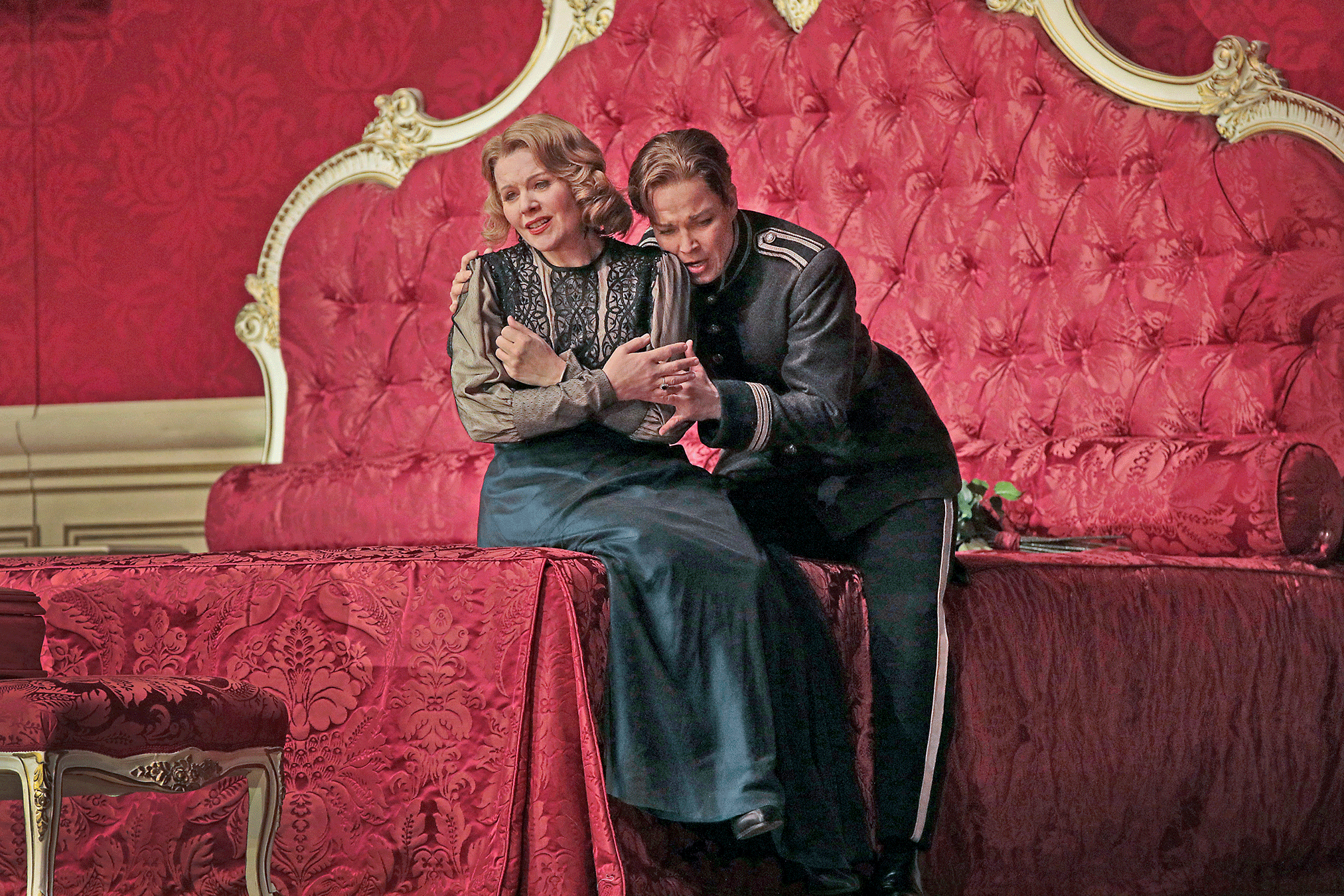
Fleming Soars to New Heights in “Der Rosenkavalier” at the Met
By Wilborn Hampton, Huffington Post
Of all the myriad and glorious joys Renée Fleming has brought to the operatic stage, none is more sublime than her Marschallin in Strauss’s Der Rosenkavalier, and the Met Opera’s plush and updated new production provides a showcase for her definitive performance in one of the opera’s most poignant roles.
Fleming owns nearly every role she has undertaken – Rusalka, Manon, Thais, Desdemona, to name but a few of the 22 she has sung – but the Marschallin is almost a signature part. And paired with a bravura performance by the Latvian mezzo Elina Garanca as the Marschallin’s young lover Octavian, this is a Rosenkavalier not to be missed.
It is also a final chance to see one of our greatest sopranos sing one of the most moving characters in the repertory. The eight remaining Met performances will be the last in which Fleming sings the Marschallin. But audiences around the world will have the chance to hear her final one on May 13 when the Met simulcasts it to over 2,000 theaters in some 70 different countries as part of its Live in HD series.
Der Rosenkavalier is basically a bedroom sex farce interspersed with philosophical musings on the inexorable march of time and the personal ravages that flow in its wake. If that sounds incongruous, Strauss was not a predictable composer. Known as a leading avant-gardist – he had written Elektra just two years earlier – Strauss wanted to try his hand at comedy and Rosenkavalier started out as a sort of German opera buffa.
But at some point during its writing, the character of the Marschallin – the wife of the Austrian Field Marshal who is having an affair with the young count Octavian – took on more complex human frailties and became the emotional center of the opera.
It is toward the end of the first act, when the Marschallin, suddenly feeling old, tells her teen-aged lover that he will one day leave her for someone younger and prettier that Rosenkavalier moves to a higher plane, pondering the mysteries of life and love and the inconstancy of time. These are themes Strauss returns to in a plaintive final act trio in which the Marschallin faces the inevitability of her own prediction.
If anything, Fleming sings the Marschallin with even greater depth and pathos than her last appearance in the role some seven years ago. Her great aria “Hab mir gelobt” is sung with such a palpable sense of loss it is like a benediction.